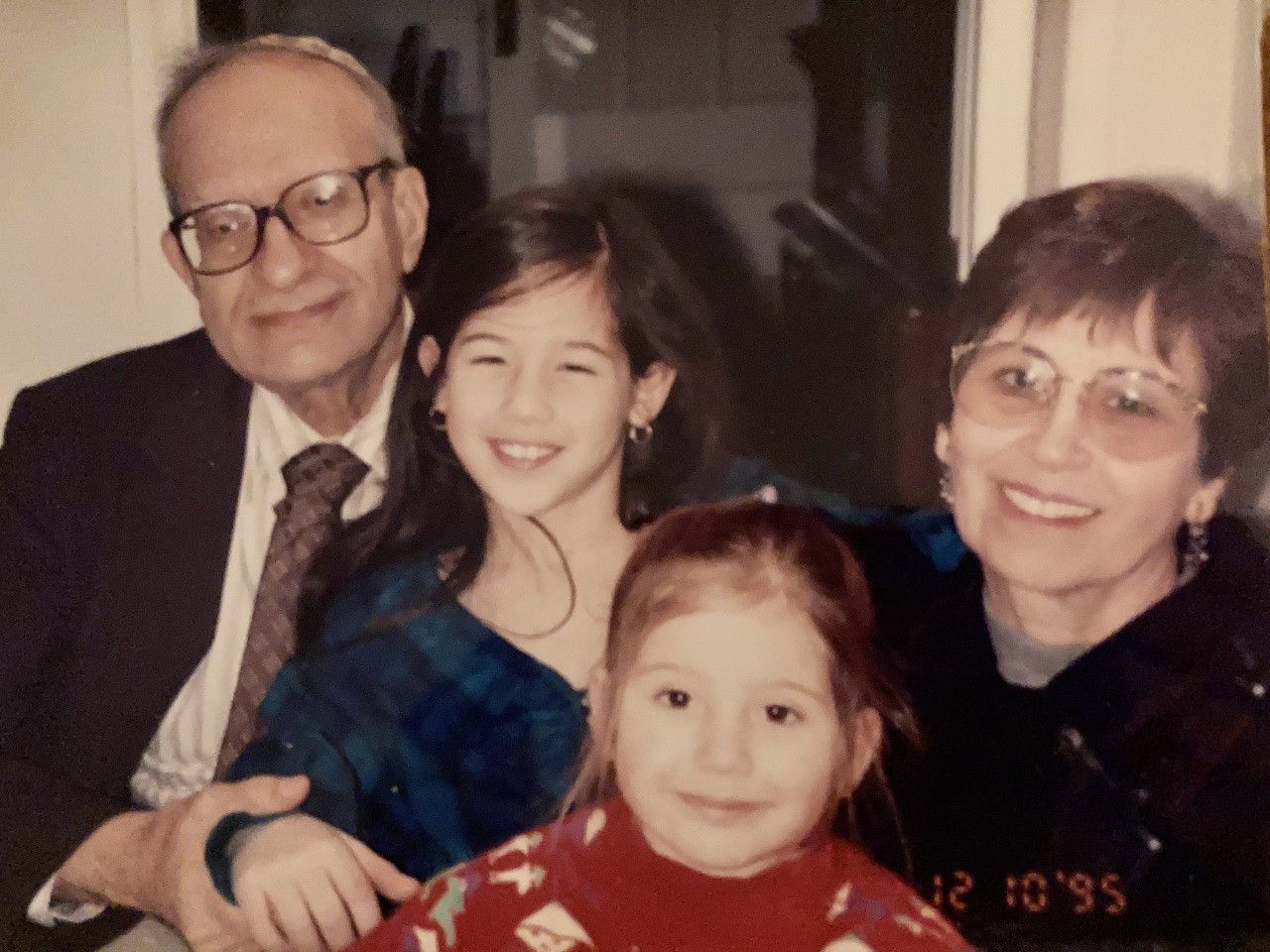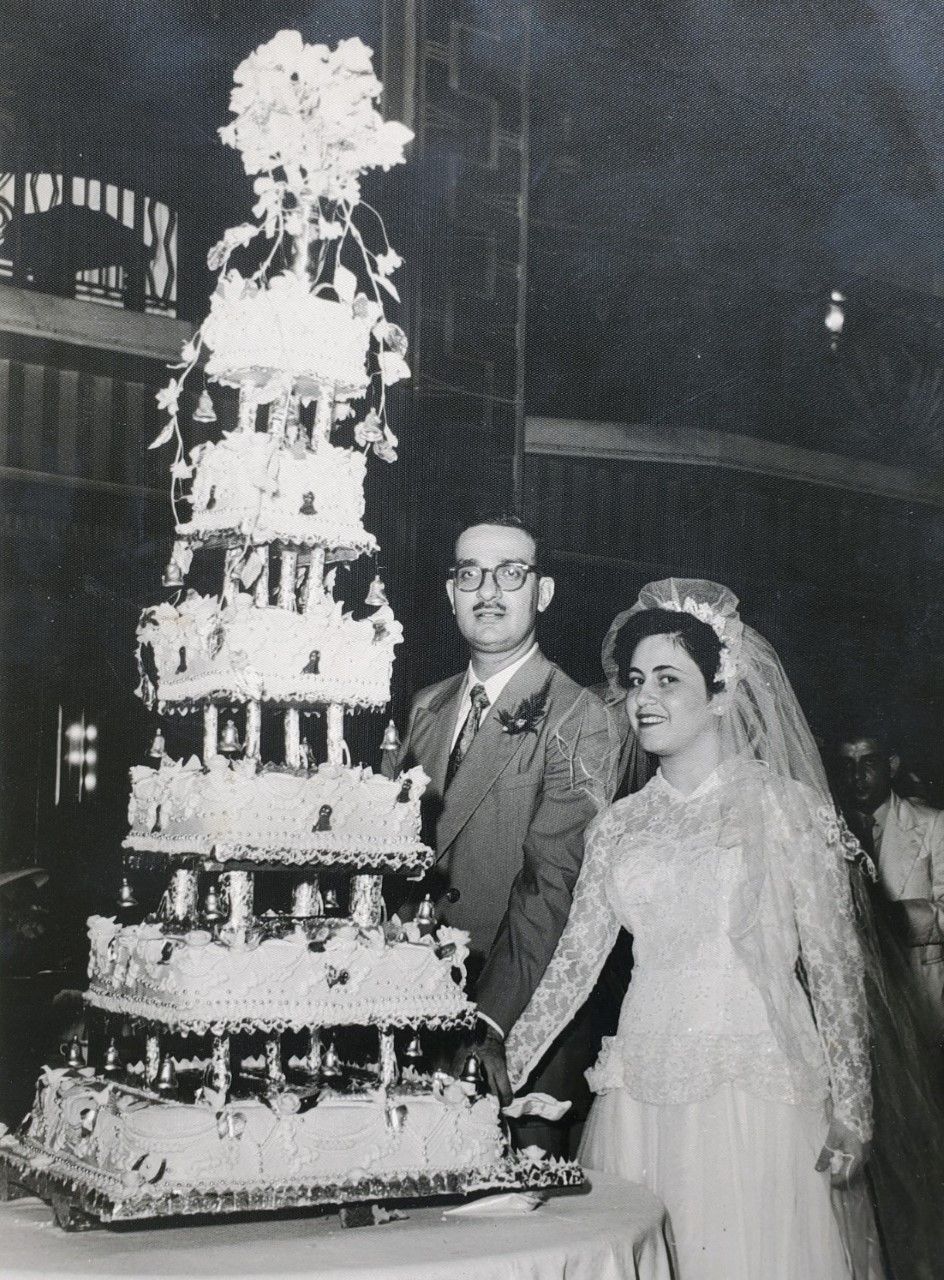Family
My Year of Zoom Kaddish
My father, Rabbi Ezekiel Nissim Musleah, died of Covid on July 14, 2020. He left a manual of Jewish mourning customs from our Baghdadi-Indian heritage with specific instructions about how to conduct the funeral and the shiva; biblical, rabbinic and kabbalistic texts to recite on the 22nd and 30th days after the funeral; and the Mourner’s Kaddish with its variations. He called the 500-page, hard-bound volume embossed with gold lettering Kir’u Aharai, Read After Me.
What he didn’t include—much less foresee—was how to participate in a year of “virtual” mourning, when the mourning was real, but the community was virtual. After leading a nightly minyan for family all over the world the first month after his death, I switched to participating in the Zoom minyan of Temple of Israel of Great Neck, N.Y., either alone or with my mother, who had been staying with me every other weekend.
Wrapped in my Indian-silk tallit of violet and gold, I could say the Kaddish in drawstring pants, cocooned in my father’s maroon V-neck sweater. I could show myself or not—I often didn’t. I could unmute or not. Or, I could pop in ear buds and take a walk with the minyan in my pocket, listening to cardinals whistle and trill over the awkwardly jagged choir of voices praying for peace and healing.
Usually, I paced and prayed from my home office, letting my eyes drift to the wooden sign with the faded letters of my grandfather’s name that once announced the family residence at 11 Bowbazaar Street in Calcutta, my father’s boyhood home. Below it, as part of a photo collage, my parents are forever posing with their seven-tiered wedding cake that towers over them.

Courtesy of Rahel Musleah.
Part of my reticence to turn on my video during the services was the inability to blend our voices on Zoom. In the absence of the profound experience of singing together, the line between being separate and together felt neither real nor comfortable nor complete.
I made an exception when reading Torah or saying my father’s name during El Maleh Rachamim on Mondays and Thursdays: “Avi mori, My father, my teacher; Ateret roshi, the crown of my head; Ezekiel Nissim, the son of Isaac Sassoon and Flora Musleah.” No matter how many weeks or months passed, tears often came, unbidden.

Courtesy of Rahel Musleah.
When I chose emotion over practicality, I put aside the Conservative Siddur Sim Shalom and lovingly caressed the siddur from which my father recited the Kaddish for his mother when he was 10 years old. In his childish hand, he had numbered the pages in blue pencil, written his own table of contents in cursive and noted how long it took the hazzan to recite each section. Printed in Bombay in 1888 under the reign of Queen Victoria, the black leather binding stamped with “E.M.” has separated from the spine, and one day I was amazed to find a secret inner lining with the alphabet in Hindi and English under the sacred Hebrew text, a metaphor for my father’s multilayered identity.
There were times during this year of mourning that I played the Shacharit service from among the numerous cassette recordings my father left as part of his meticulous legacy to preserve our tradition. Listening to his beloved voice now, fluid with quarter tones—a well of faith—was both painful and comforting. It was as if he’d sprung to life again.
The Sephardi text of the Kaddish ends with our asking for life, contentment, salvation, consolation, deliverance, healing, redemption, pardon, atonement, comfort and relief. I either retreated to another room to chant it from a still place within myself or simply faced east away from my computer, toward a photograph of Calcutta’s Maghen David Synagogue that my father cherished and, below it, a photo of him in his younger years with my mother and my two daughters. He wears a small, contented smile on his face.
I am simultaneously grateful and sad that this was my year of Kaddish.
Rahel Musleah leads “NamaStay at Home,” virtual tours of Jewish India and other cultural events (explorejewishindia.com).










 Facebook
Facebook Instagram
Instagram Twitter
Twitter
Harriet L SHUMAN says
Beautiful and lovely words – after almost 50 years, I still have a heavy heart when I remember the day my father passed – my feelings are still the same when I say kaddish for him…..your beautiful words fill my heart with warmth and tenderness
Victoria Rashbaum Horowitz says
Thank you so much for this wonderfully helpful article. My older sister, Susie, died during COVID in Dec 2020 in Canada. The border was closed. I could not be with my brother in law in person. The funeral was livestreamed at the Jewish Cemetery in Windsor, Ontario. I looked for a Reform Minyan to say Kaddish daily and found one after attending two others which did not feel right for me. I have been attending this Reform Minyan at Temple Israel in Omaha, Nebraska for the past 10 months 5 mornings a week and am so grateful to be part of this incredibly welcoming community. Thank you again. Will pass on this article to my Minyan brothers and sisters to our Rabbi.